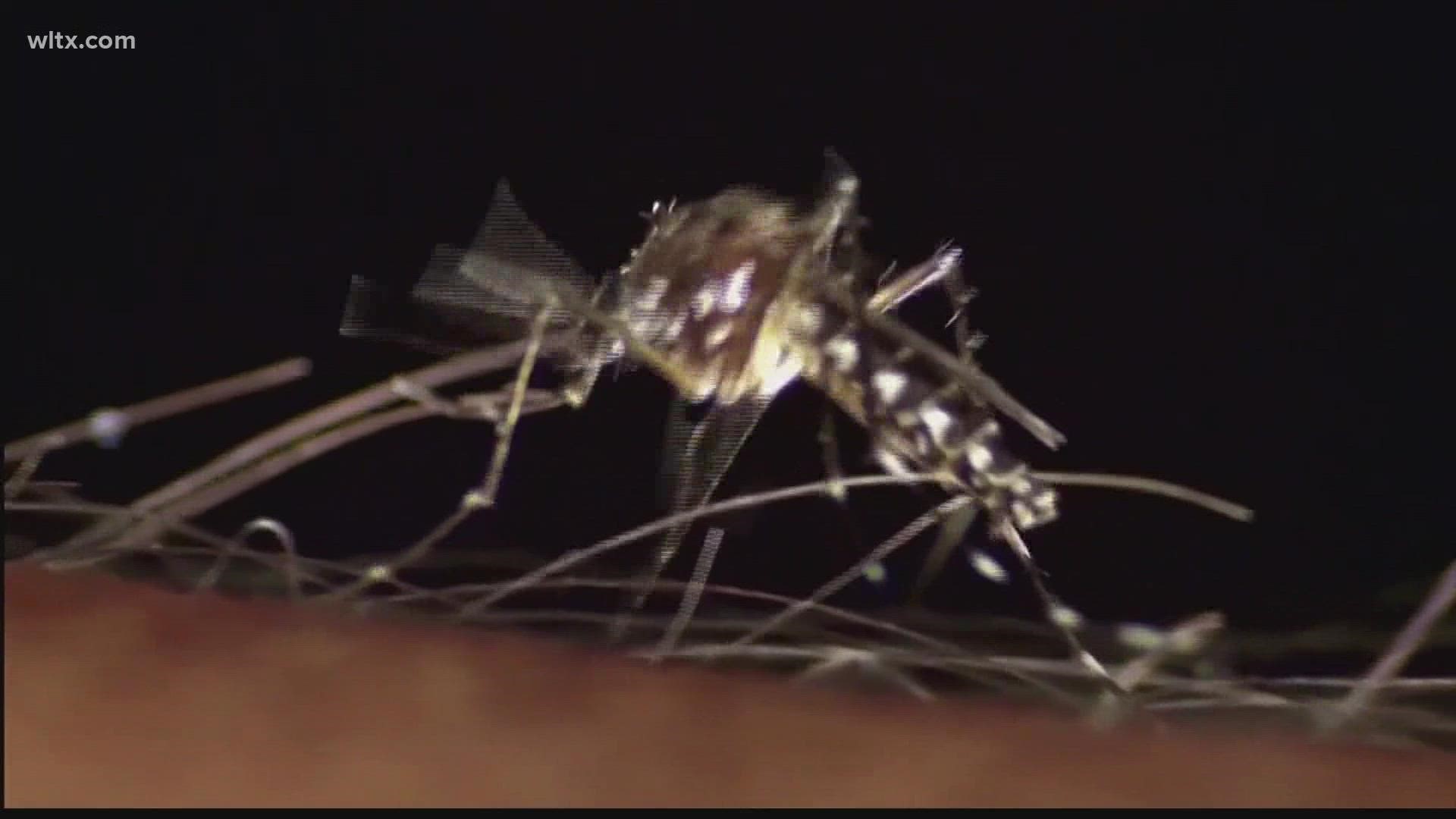COLUMBIA, S.C. — James Morris, who lives on Main Street in Columbia says he's been following the increase of West Nile Virus cases in South Carolina for weeks, including updates on a deadly case in the Midlands. He now worries about the impacts of the virus and how common it is in Richland County.
"Mosquitos haven't bothered me much. But, when they're carrying a virus like West Nile, I'm more alert and try to avoid situations where I might get bitten."
Morris has questions about how likely he is to get the virus.
"How common is this in the bird population? How common is it in the mosquito population? If you knew how common it was, you would have some idea what your chances are."
According to SCDHEC's mosquito borne illness tracker, there have been 35 cases found in mosquitoes in South Carolina. Additionally, DHEC says there have been 11 human cases in South Carolina, 9 of which were in the Midlands and 6 in Richland County.
RELATED: DHEC confirms multiple cases of human West Nile Virus, declares outbreak in Richland County
News19 spoke to Dr. Brannon Traxler from DHEC who help answer questions people had.
Chano Goeh says she first heard about the virus recently. Now, she wants to know the best way to stay protected. She asks, "Is there a vaccine for it? Is there any thing we can do to prevent it?"
Dr. Traxler says there isn't a vaccine currently available for the virus but is confident there are teams working to develop an effective one. She adds there are practical ways you can protect yourself.
"The biggest thing is, on your property, outdoors, not having standing water. Then personally, also wearing long sleeves, long pants ... wearing mosquito repellent, particularly that contains deet."
Hank Wynn has also been following West Nile virus updates from around the country and spoke about the rumors for who is most at risk.
"Particularly dangerous to pregnant women, but not particularly dangerous to people who are healthy."
Though partially true, Traxler adds that anyone can be bitten by mosquitoes and thus runs the risk of getting symptoms. She said those symptoms include puffy eyes and a fever and can start to show anytime between 2 and 14 days after exposure.
Looking forward, Dr. Traxler says because symptoms are similar to other common diseases in the community, DHEC will begin sending updated information to physicians so they can diagnose and track cases properly.

